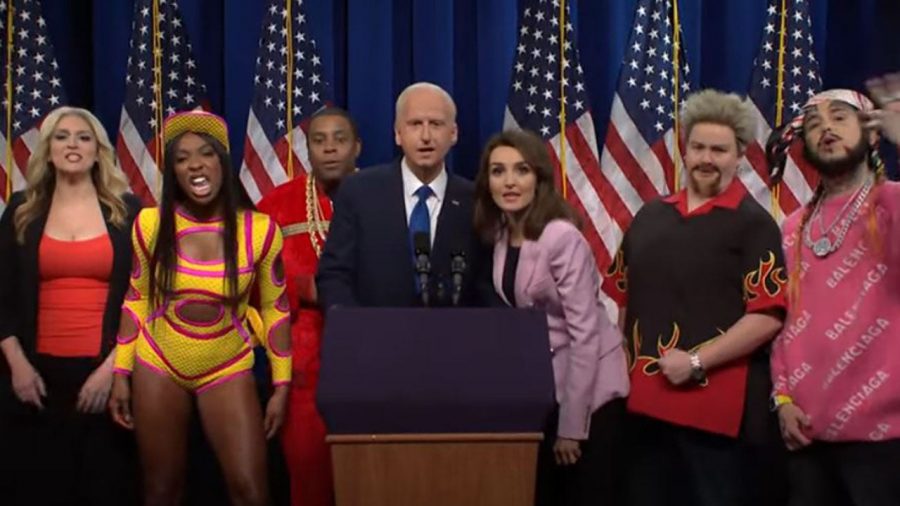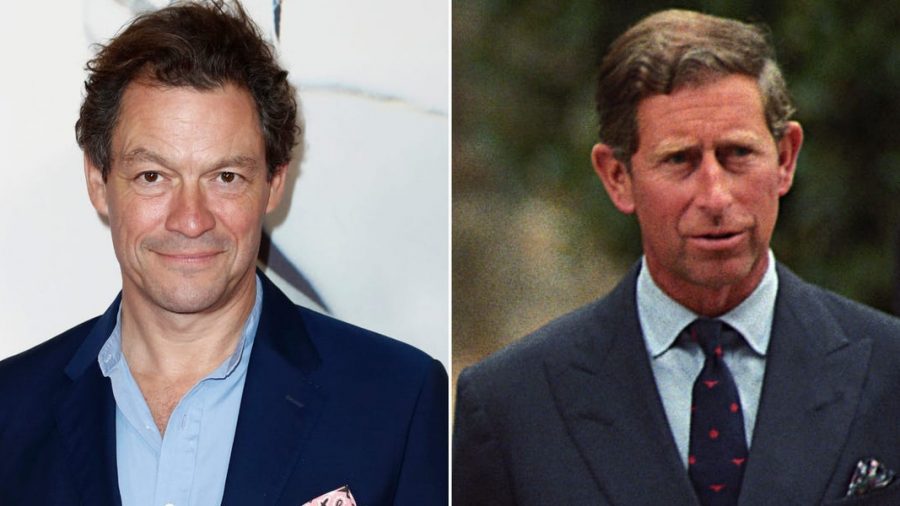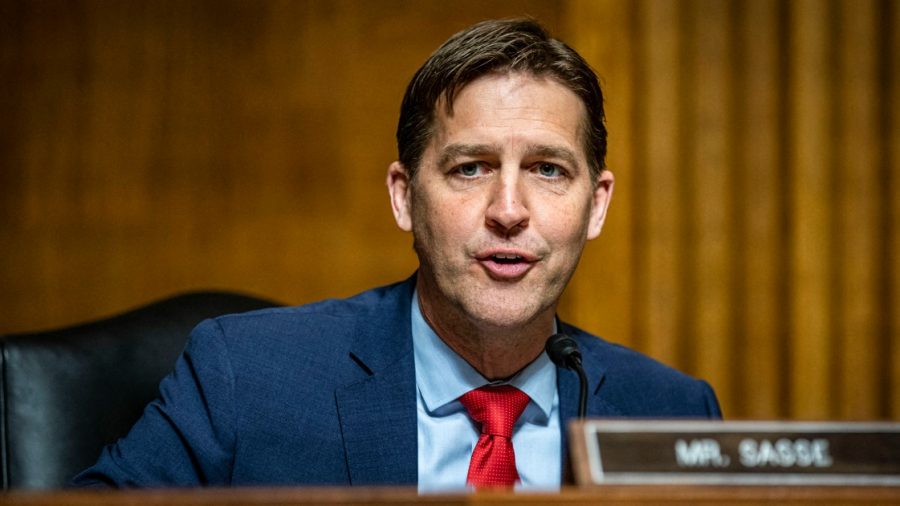This week, The Onion’s editor-in-chief Mike Gillis filed an amicus curiae brief with the U.S. Supreme Court. He says he believes it will inform the general public while persuading the court to hear the First Amendment case of an Ohio individual. hide caption – Mike Gillis
switch to caption
of Mike Gillis This week, The Onion’s editor-in-chief Mike Gillis filed an amicus curiae brief with the U.S. Supreme Court. He says he believes it will inform the general public while persuading the court to hear the First Amendment case of an Ohio individual.
Gillis, Mike Due to the satirical news website The Onion, the protracted First Amendment case of an Ohio man is now receiving a lot of attention.
And the reason isn’t that it was faked. It’s as a result of the publication becoming personally involved and arguing for parody itself in a Supreme Court brief.
The 23-page amicus brief was submitted on Monday in Anthony Novak’s defense. Anthony Novak is requesting that the Supreme Court take up his civil rights case against the police officers who arrested and charged him for creating a mocking Facebook page of their department ( more on that here ).
LAW “If Americans make mockery of the government, can they be jailed? America’s Finest News Source was surprised by this, and its editorial staff had an uncomfortable learning experience “Brief begins.
After defending the value and influence of parody in society, the article goes on to say that effective satire relies on being realistic enough to fool readers into believing one thing at first, only for them to later “laugh at their own gullibility when they realize that they’ve fallen prey to one of the oldest tricks in the history of rhetoric.”
The brief makes the argument that none of this would be effective if a disclaimer were to come before it. It notes that most courts historically held this opinion, with the exception of the 6th U.S. Circuit Court of Appeals, which in this case agreed with the police officers. In its brief, The Onion requests that the Supreme Court hear the matter and decide in Novak’s favor. In addition, it calls for “the people’s rights to be vindicated, and different historical wrongs to be righted.”
LAW The statement reads, “The Onion cannot stand idly by in the face of a ruling that threatens to disembowel a form of rhetoric that has existed for millennia, that is particularly effective in the field of political debate, and that, purely incidentally, forms the basis of The Onion’s writers’ paychecks.
The document swiftly gained notoriety on social media and in traditional news headlines due to both its novel method of intervention—this is its first such legal filing—and its lighthearted treatment of a weighty subject.
It should be obvious that parodists cannot be prosecuted for telling a joke while maintaining a straight face, according to one subheading, and it is self-referential when it claims that the story sounds like a headline straight out of The Onion, “albeit one that’s significantly less funny because its subjects are real.”
Because it “knows that the federal judiciary is staffed solely by total Latin dorks,” it also directly appeals to its audience by throwing in various Latin terms (at one point, a whole paragraph full; see page 15).
According to the brief’s author (who makes the joke that this might be the first time his own father, a workers’ compensation attorney, has used an exclamation mark to commend any of his writing), some of the brief’s more academically inclined supporters have stated it should be taught in law schools. But it also appears to have resonated with those outside the legal community.
The brief’s author and chief writer, Mike Gillis, told NPR in a phone interview that he believes the file would not only persuade the Supreme Court to take up the issue but also demonstrate to the general public why parody is so important.
It was extremely gratifying for him to “simply have this many people thinking about parody, and the fact that it contributes a lot to their life, and that it’s something worth defending.”
HOW THE BROUGHT BEGAN An acquaintance who knows both of them got Novak’s legal team in touch with The Onion over the summer, according to Gillis, who has worked at The Onion for about ten years.
He hadn’t been following the case closely himself, but once The Onion’s legal team began investigating it and the editorial team began talking about it, they recognized it was just up their alley.
Amicus briefs are frequently produced by the attorneys participating in the case and then provided to the interested parties for clarification, as Gillis explains. In this instance, it worked the other way around: in what he called “an highly collaborative process,” The Onion’s lawyers added legal precedent and historical context after he had written the majority of the arguments and jokes.
“We thought it made more sense for us to kind of make the brief itself an example of why this thing is worth defending, and why parody is really interesting and grabs people’s attention,” he continues. “I think the draft itself was trying to make an argument for why parody is a really powerful form.”
Gillis claims that he sat down and typed 1,500 words in one sitting right after the initial contact with Novak’s legal team because he was so enthused about the “fun, exciting, attention-grabbing” case he knew he could make.
His years of immersion in satire and parody, including his work for The Onion, teaching at Second City, and speaking with college humor magazines, didn’t hurt either because he was already familiar with the theory and significance of the genre.
Since he thought it odd to be writing so publicly about the creation and worth of The Onion’s own work, which he described as “sort of an example of why a disclaimer for parody is not a good idea,” Gillis also occasionally sought advice from The Onion’s legal team and editor-in-chief.
LAW Gillis must prove that The Onion is an interested party, which is one of the requirements of the brief (for starters, it was invoked in one of the early court rulings on the subject). He cites two primary causes as follows: Limiting parody could be detrimental to the company’s business strategy and could chill parody generally.
He claims that there is a lot at risk. Gillis understood that he wanted the brief to be hilarious more than anything else, despite the fact that he wanted to make a number of points.
It seems like everyone enjoys laughing, he claims. Additionally, “And sometimes I think these legal officials maybe get a little bit into their own heads about precedent and everything, and lose track of just the purpose of why comedy is great, and why parody is fantastic,” she continued.

In Chicago, The Onion’s editorial staff gathers for a team meeting in 2020. About a dozen staff writers as well as contributors are employed, according to Gillis. hide caption – Mike Gillis
switch to caption Members of The Onion’s editorial staff gather for a team meeting in their Chicago office in 2020, as shown in Mike Gillis
. About a dozen staff writers as well as contributors are employed, according to Gillis.
Gillis, Mike THE INFORMATION GILLIS WANT YOU TO KNOW For example, Gillis wanted the Supreme Court to understand why it’s crucial for parody to be realistic and why designating it as such beforehand would not only be useless but also be counterproductive.
However, he also views this as an opportunity to defend parody as a whole. So why does it matter, NPR questioned?
It’s a “very powerful rhetorical form that can’t truly be reproduced by a serious, dry statement of critique,” is the succinct response. The extended response relates to how even minor form changes can help readers realize that “this entity that had this incredibly elevated idea of itself is actually not infallible and can be questioned easily,” going back thousands of years to the word’s etymological root.
Gillis cites a few instances of such from The Onion’s history, including: The magazine and China’s state-run outlet republished that as fact dubbed Kim Jong-un “the sexiest man alive” in 2012; the announcement was accompanied with a slideshow. Locally, a GOP lawmaker was duped into believing (and warned constituents about ) a hoax about Planned Parenthood building a $8 billion “Abortionplex.”
According to Gillis, satirists don’t intentionally strive to deceive readers. It “actually punctures their own feeling of self-importance because they’re demonstrating that they’re not a reasonable person,” though, when authoritarians give in to parody.
These are notably high-profile instances due to The Onion’s prominence as a publication (in the brief, it deadpans that it “has developed into the single most powerful and important institution in human history,” employs 350,000 journalists, and proudly runs tests on millions of animals every day).
The brief emphasizes that, however, “the quality and taste of the parody is irrelevant” to the extent of legal protection it merits.
According to Gillis, the First Amendment rights should apply to everyone, not only those with the financial means to hire expensive legal counsel or parodists with a proven track record. “I just believe it should be a universal legislation that everyone can support. And that is essentially a win for everyone.”
According to him, the debate surrounding satire and parody will be more beneficial the more knowledge the general public has about how they function. Despite the fact that people have been angry with satirists for thousands of years, Gillis argues that the current technical and political climate allows for a more individualized (and frequently politicized) interpretation and critique of spoofs.
If there is one thing he wants the public to understand about parody, it is that “there’s nothing going wrong if, for a little while, you’re pulled in by a comedian,” whether that be in the text of a mock news website or in the crowd of a stand-up performance.
“It would be fantastic to have a little more room provided to satirists to do what they have been doing for thousands of years,” he argues. “I believe it would be great if more people could understand that it’s OK to be temporarily duped by parody, to not take offense at it, and to know that that’s just part of the form.”












